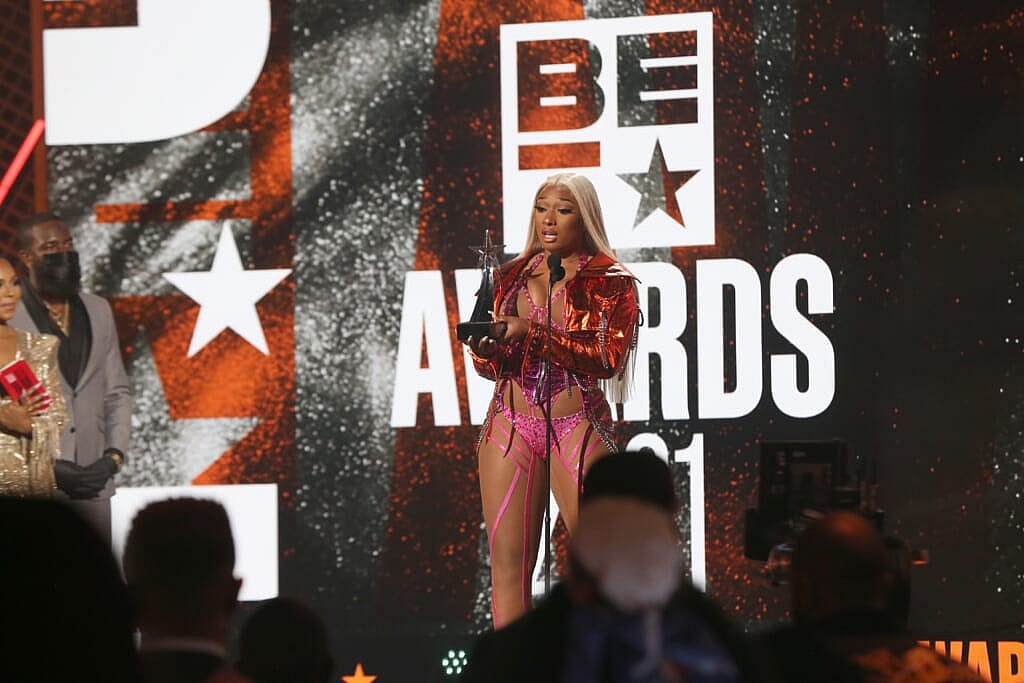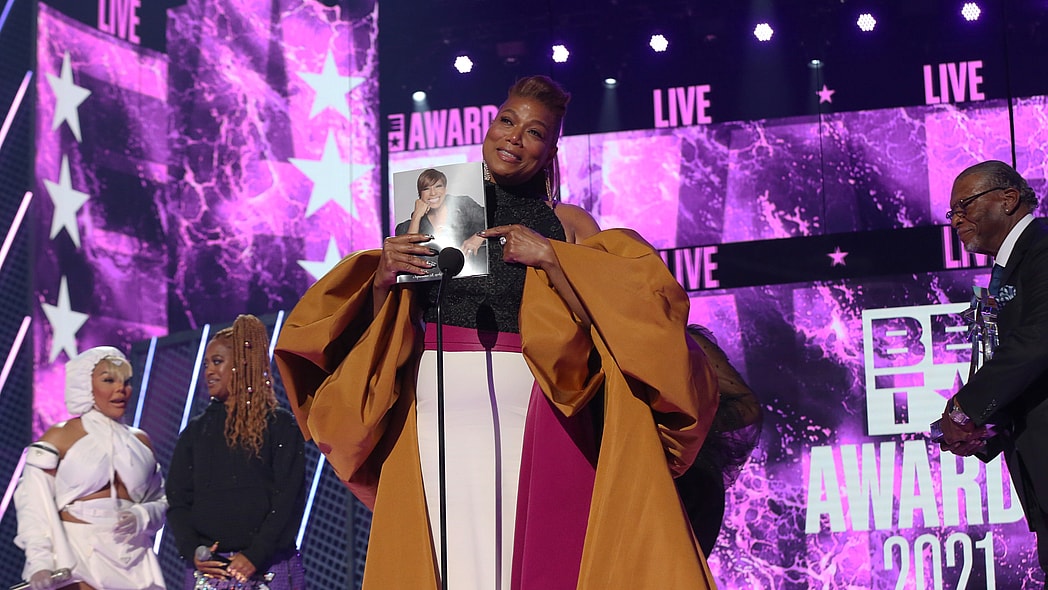June is Black Music Month and it’s no coincidence that the BET Awards, one of the biggest, star-studded celebrations of Black culture, also happens this time each year.
Criticism of so-called mainstream award shows, like the Golden Globe Awards, hit a fever pitch in early 2021 over what many considered an exclusion of Black talent. This week on the Dear Culture podcast we’re asking: Dear Culture, is it time to break free of awards ceremonies that don’t give us our flowers?
“There’s just certain things about our culture that I don’t think these mainstream awards ceremonies can get,” said co-host and theGrio Social Media Director Shana Pinnock.
She added that although audiences tend to think of awards ceremonies like the Oscars, Grammy Awards and Emmy Awards as “mainstream,” the reality is that Black culture is the dominant culture, which influences a lot of the content with which we engage.
Ceremonies like the BET Awards, which is now in its 20th year, and the NAACP Image Awards prove that Black Americans are more than capable of honoring artists and creatives that shape our culture. However, when it comes to viewership, the BET Awards is still not competitive with shows like the Grammys, which saw a steep decline in viewership this year.

Grammy viewership in 2021 was nearly four times the viewership of Sunday’s BET Awards, despite the Grammys losing more than 10 million viewers this year. Dear Culture co-host and theGrio Managing Editor Gerren Keith Gaynor said it’s not only important for viewers to tune in, but for Black celebrities to show up and show out at Black awards ceremonies.
“The same way that you get all dolled up and pretty for white mainstream award ceremonies, you have to treat Black award ceremonies the same way,” said Gaynor. “How you show up shows what you think of the arena that you’re in.”
Pinnock noted that often times Black awards ceremonies after often hypercriticized by Black people for a perceived lack of high production value, disorganization and sometimes outright chaos.
“We all remember the 1995 Source Awards,” said Pinnock citing the infamous televised brawl that broke during the height of the East Coast vs. West Coast rivalry. “However, I would like to see more Black celebrities and artists boycott the Grammys and the Oscars in higher numbers because there are too many travesties where you’re like ‘How the hell did this win, when this other thing wasn’t recognized.’”
While social media movements like #OscarsSoWhite in recent years have underscored the issue of Black talent being shut out of awards season, Pinnock said there is a longstanding legacy of Black artists demanding recognition and boycotting larger, mainstream awards. She referenced Will Smith’s and DJ Jazzy Jeff’s refusal to participate in the 1989 Grammy Awards after learning that their category would not be televised.
Gaynor said Black awards ceremonies often times don’t have the same resources and sponsorship as some of the awards shows with higher viewership.
“Keep in mind that we always get the short end of the stick, which means you have less of a budget,” said Gaynor. “It doesn’t mean that they’re in lack of talent or that they’re in lack of care of people who want to put out a good product, but money has a factor in that as well.”
As the conversation around how to recognize and support Black artists continues and evolves, Gaynor says the bottom line is that Black people have to show up for one another.
“It’s really important that we honor our own because if we don’t do it no one will.”
To hear the entire conversation, tune into the Dear Culture podcast. Now streaming on Apple Podcast, Spotify, and Stitcher.
TheGrio is now on Apple TV, Amazon Fire, and Roku. Download theGrio today!


